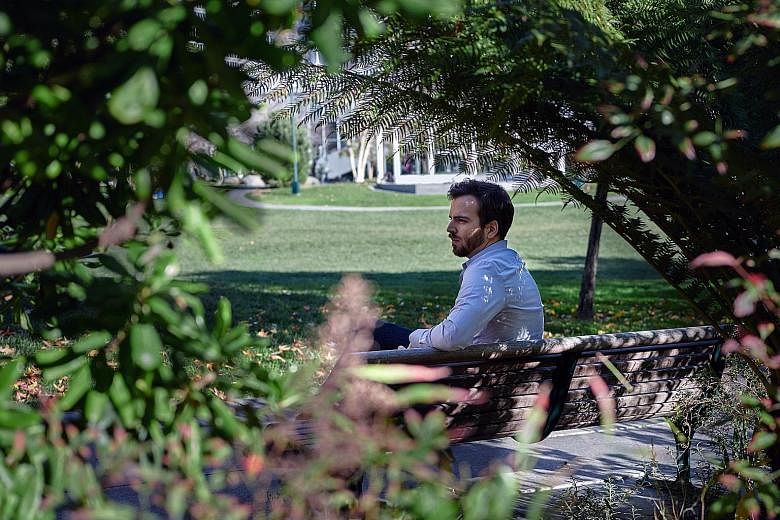NEW YORK • Mr Stefan Thomas, a German-born programmer living in San Francisco, has two guesses left to figure out a password that is worth, as of this week, about US$220 million (S$292 million). The password will let him unlock a small hard drive, known as an IronKey, which contains the private keys to a digital wallet that holds 7,002 bitcoins.
While the price of bitcoin dropped sharply on Monday, it is still up more than 50 per cent from just a month ago when it passed its previous all-time high of around US$20,000.
The problem is that years ago, Mr Thomas lost the paper where he wrote down the password for his IronKey, which gives users 10 guesses before it seizes up and encrypts its contents forever.
He has since tried eight of his most commonly used password formulations - to no avail. "I would just lay in bed and think about it," he said. "Then I would go to the computer with some new strategy, and it wouldn't work and I would be desperate again."
Bitcoin has made a lot of its holders very rich in a short period of time. But the cryptocurrency's unusual nature has also meant that there are many people who are locked out of their bitcoin fortunes as a result of lost or forgotten keys. They have been forced to watch, helpless, as the price has risen and fallen dramatically, unable to cash in on their digital wealth.
Of the existing 18.5 million bitcoins, around 20 per cent - currently worth around US$140 billion - appear to be in lost or otherwise stranded wallets, according to cryptocurrency data firm Chainalysis. Wallet Recovery Services, a business that helps find lost digital keys, said it gets 70 requests a day from people who want help recovering their riches, three times the number a month ago.
"Through the years, I would say I have spent hundreds of hours trying to get back into these wallets," said Mr Brad Yasar, an entrepreneur in Los Angeles who has a few desktop computers that contain thousands of bitcoins he created, or mined, during the early days of the technology. While those bitcoins are now worth hundreds of millions of dollars, he lost his passwords many years ago and has put the hard drives containing them in vacuum-sealed bags, out of sight.
With traditional bank accounts and online wallets, banks like Wells Fargo and other financial companies like PayPal can provide people the passwords to their accounts or reset lost passwords.
But bitcoin has no company to provide or store passwords. Its creator, a shadowy figure known as Satoshi Nakamoto, has said bitcoin's central idea was to allow anyone to open a digital bank account and hold the money in a way that no government could prevent or regulate.
This is made possible by the structure of bitcoin, which is governed by a network of computers that agreed to follow software containing all the rules for the cryptocurrency. The software includes a complex algorithm that makes it possible to create an address, and associated private key, which is known only by the person who created the wallet.
The software also allows the bitcoin network to confirm the accuracy of the password to allow transactions, without seeing or knowing the password itself. In short, the system makes it possible for anyone to create a bitcoin wallet without having to register with a financial institution or go through any sort of identity check.
But the structure of this system did not account for just how bad people can be at remembering and securing their passwords.
BITCOIN HOLDINGS OUTSOURCED
Other bitcoin believers have also realised the difficulties of being their own bank. Some have outsourced the work of holding bitcoin to start-ups and exchanges that secure the private keys to people's stashes of bitcoins.
Yet some of these services have had just as much trouble securing their keys. Many of the largest bitcoin exchanges over the years - including the one-time well-known exchange, Mt Gox - have lost private keys or had them stolen.
At least, Mr Thomas said he has managed to hold onto enough bitcoins - and remember the passwords - to give him more riches than he knows what to do with.
As for his lost password and inaccessible bitcoins, he has put the IronKey in a secure facility - in case cryptographers come up with new ways of cracking complex passwords.
NYTIMES

